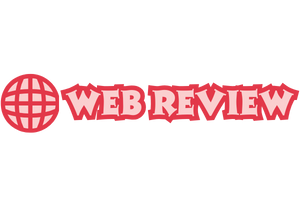Periodically, someone makes a grand announcement: “SEO is finished.” These headlines attract clicks, spark debates in LinkedIn comment sections, and set digital marketing teams into a frenzy.
Let’s be clear, however—SEO is far from finished. It’s merely evolving.
What is truly becoming obsolete are the outdated strategies that were once used to manipulate the system: keyword cramming, inexpensive backlinks, and content that prioritised search engines over customers. The era of achieving Google rankings by merely checking off technical requirements is over. Nowadays, if you’re not aligning SEO basics with contemporary tactics, AI-enhanced insights, and a thorough grasp of user intent, you’re lagging behind.
Let’s delve into why SEO remains vibrant—and which methods you need to abandon once and for all.
The Fallacy of the SEO Cemetery
Google revises its algorithm thousands of times annually. Some of these adjustments are insignificant; others, such as the Helpful Content Update or the March 2024 Core Update, alter the landscape. These modifications are designed to eliminate manipulative tactics and reward content that genuinely benefits users.
So when individuals claim “SEO is finished,” what they really mean is “my tactics have become ineffective.” And that’s the crucial point.
Old-fashioned SEO is on its last legs—but modern SEO is flourishing.
What’s No Longer Effective (and Why)
The following are some of the most outdated SEO methods still being utilised—and why they’re impeding business success.
1. Keyword Cramming
There was a time when you could repeat a target keyword numerous times in a blog post and see it ascend the rankings. Today? Such unnatural repetition raises alarms.
Search engines now reward semantic comprehension. They want context, not mindless repetition. Employing related expressions, addressing search intent, and crafting content for humans—not merely crawlers—is the way forward.
2. Superficial Content
Mass-generating low-value blogs to reach a “content target” might have sufficed five years ago. But now, Google’s algorithm assesses depth, quality, and user engagement.
Pages lacking substance or existing solely to manipulate rankings often get removed from the index—or worse, incur a penalty.
3. Spammy Backlinks
Purchasing backlinks en masse, submitting to low-quality directories, or depending on private blog networks? These are artifacts of the past.
Today, link-building must be strategic, contextual, and anchored in relevance. Search engines consider the origin of the link, its application, and why it directs to your page.

What Current SEO Truly Resembles
Rather than deceiving the algorithm, modern SEO aligns with it. It entails creating content and designing your site in a manner that genuinely addresses user needs. Here’s how this manifests in 2025.
1. Intent-Centric Keyword Strategy
Forget pursuing vanity metrics. Ranking for a high-volume keyword is meaningless if it doesn’t convert. Instead, today’s leading brands focus on keyword intent—aligning content with the user’s stage in their journey.
Whether someone is seeking general advice, evaluating options, or ready to purchase, your content must address them with the appropriate format and message.
2. Optimisation for E-E-A-T
Experience, Expertise, Authoritativeness, and Trustworthiness—these are no longer mere buzzwords. They are quantifiable signals that Google evaluates when assessing site quality.
This necessitates showcasing genuine authors, citing credible sources, and building credibility through content, reviews, and backlinks.
3. Structured Data and Technical Cleanliness
Technical SEO isn’t obsolete—it’s merely assumed. Schema markup, mobile-first design, clean internal linking, and site speed all contribute to how your content performs in search. However, they are no longer competitive advantages; they are fundamental requirements.
Enter: AI Search Optimisation
As the SEO landscape advances, forward-thinking agencies are embracing AI not to replace human strategy—but to enhance it. That’s where AI search optimisation comes into play.
By analysing content structure, keyword groups, and competitor gaps on a large scale, AI tools can pinpoint what’s absent from your current SEO efforts. This doesn’t imply rewriting everything—it means refining with intention.
From smarter content audits to intent mapping and SERP analysis, AI is aiding marketers in constructing strategies rooted in contemporary effectiveness, not what succeeded in 2016.
Why Strategy Surpasses Shortcuts
A common misconception in SEO is that it’s a mere checklist: add a meta title, scatter some keywords, submit a sitemap, and you’re done.
Yet, sustainable SEO performance stems from long-term planning. It requires balancing creativity with analytics, experimentation with structure, and consistency with flexibility.
Brands investing in a modern SEO strategy—one guided by intent, enhanced by AI, and grounded in genuine content value—experience enduring benefits:
- Higher quality organic traffic
- Improved on-site engagement
- Elevated conversion rates
- Decreased dependence on paid advertisements
That’s why more businesses are partnering with trusted agencies like Ingenious Search, who deliver not just tools, but genuine strategic insight.
Where to Focus Your Efforts Now
If you’re prepared to discard outdated SEO practices, here’s where to direct your attention next:
Content that Resolves Issues
Every blog, landing page, or service page should be crafted with the end user in mind. What do they need to understand? What objections can you address? What value do you offer?
Wiser Use of AI
Utilise AI tools to audit your content, streamline keyword research, and assess on-page performance. Just don’t use them to mass-produce generic content. Quality still takes precedence over quantity.
Integrated Channel Strategy
SEO doesn’t exist in a vacuum. Connect it with your social, email, PR, and paid strategies to maximise reach and relevance.
Continual Learning
Google will continue to evolve—and so should you. Make SEO education a regular component of your team’s growth plan.
Final Thought: The Algorithm Isn’t the Enemy
If you’re clinging to old tactics and frustrated by declining rankings, it’s tempting to blame Google. But the truth is, the algorithm is fulfilling its role. It favours the best, most pertinent content.
SEO isn’t a gimmick. It’s a discipline. And approaching it with the right mindset and modern strategy yields undeniable results.
So no—SEO isn’t finished. But it has matured. And if your strategy hasn’t, now’s the time to advance.




